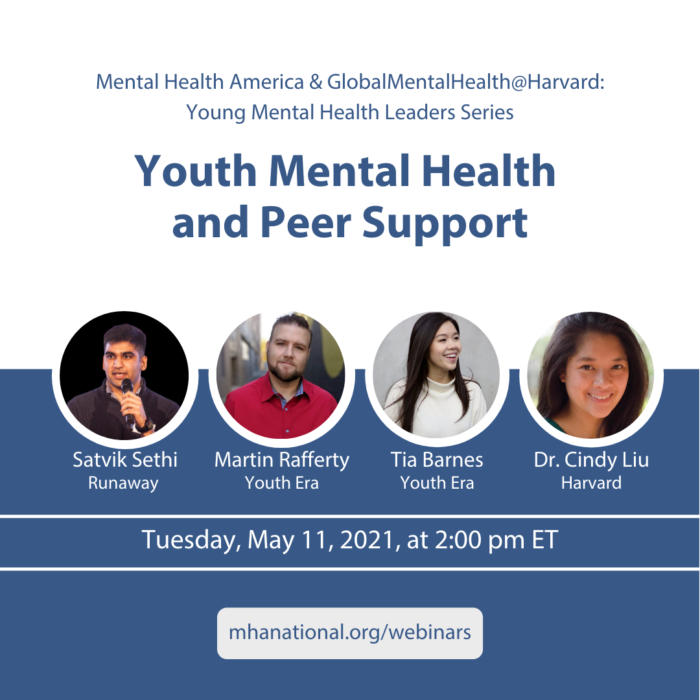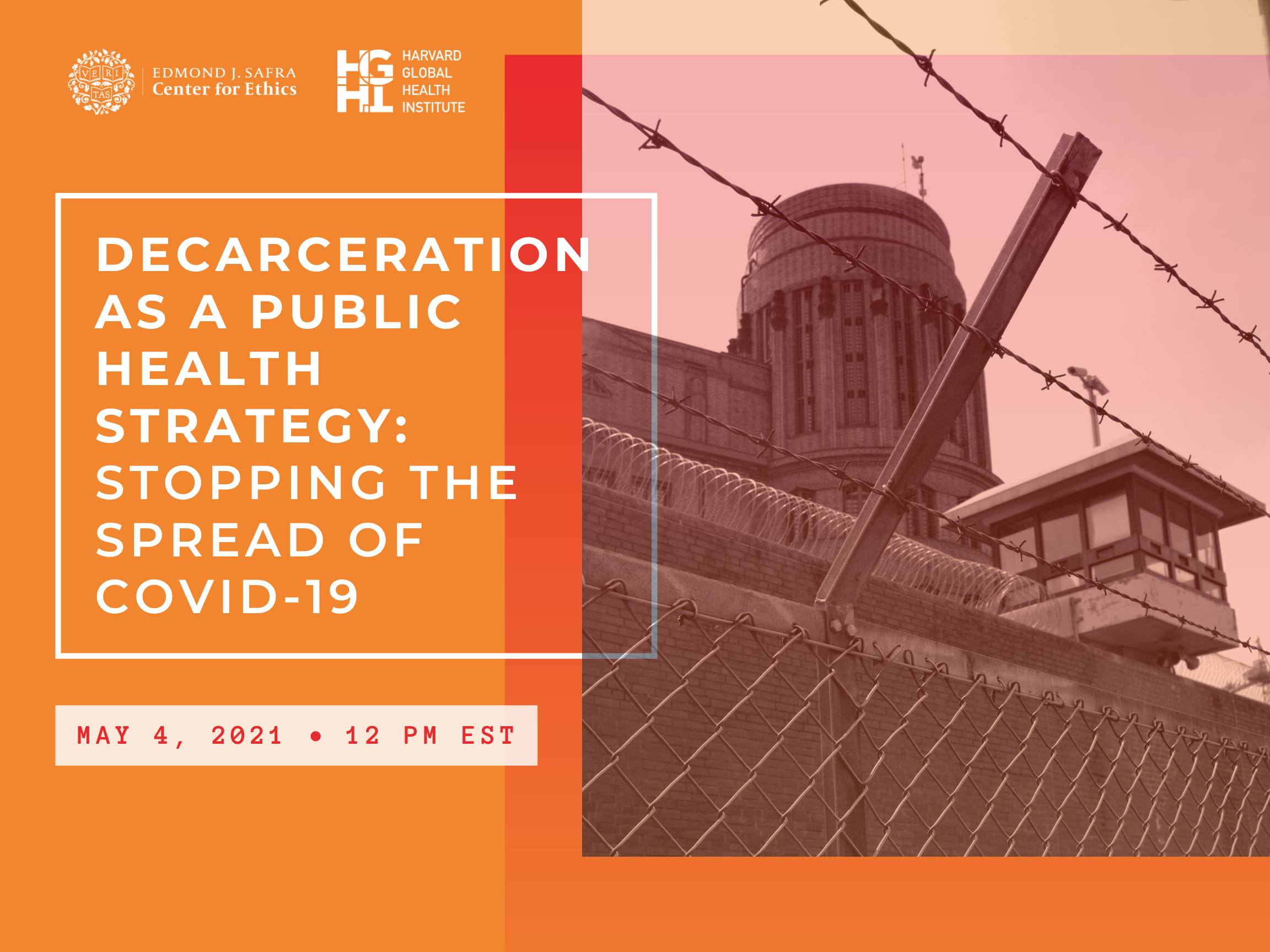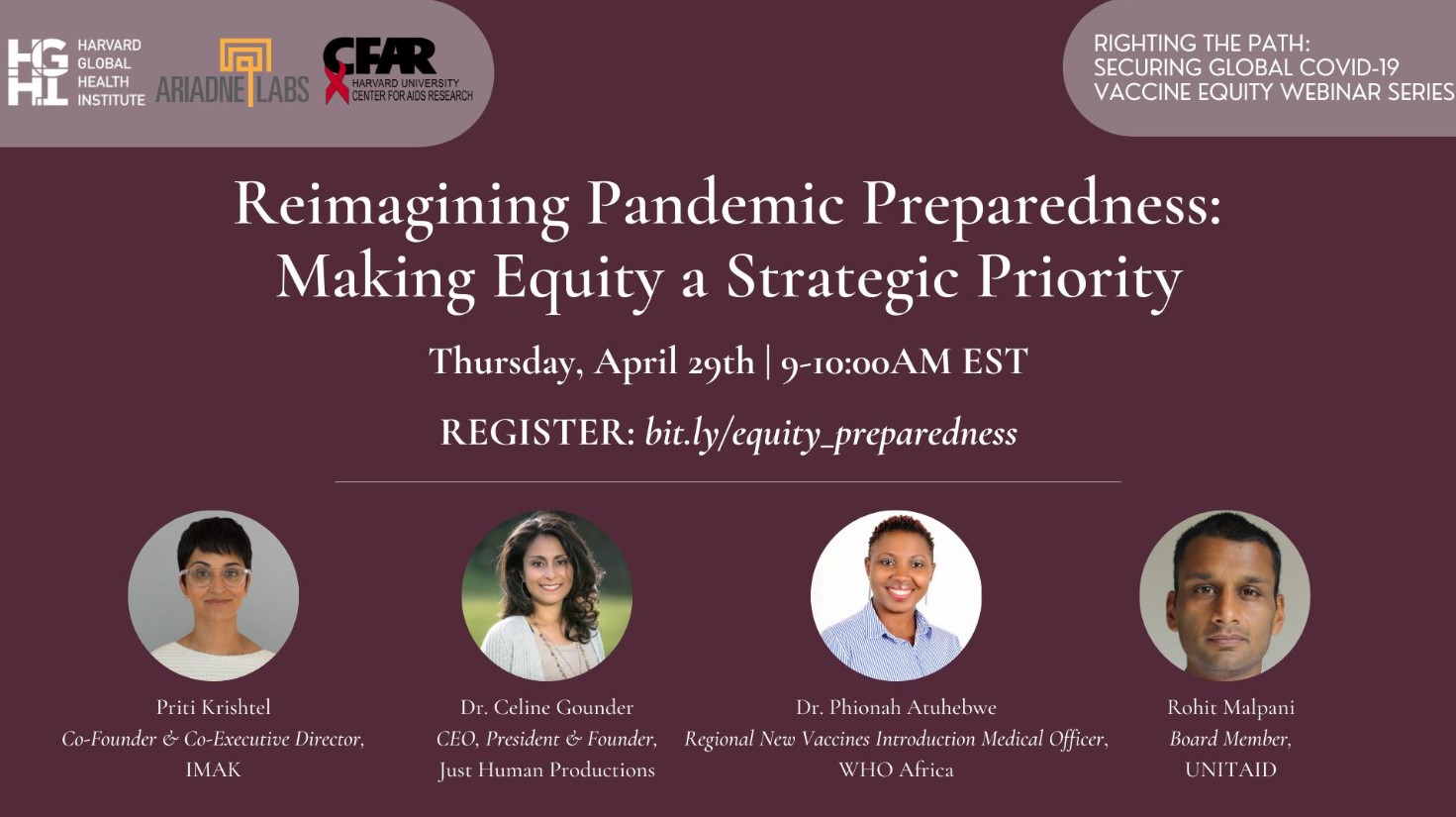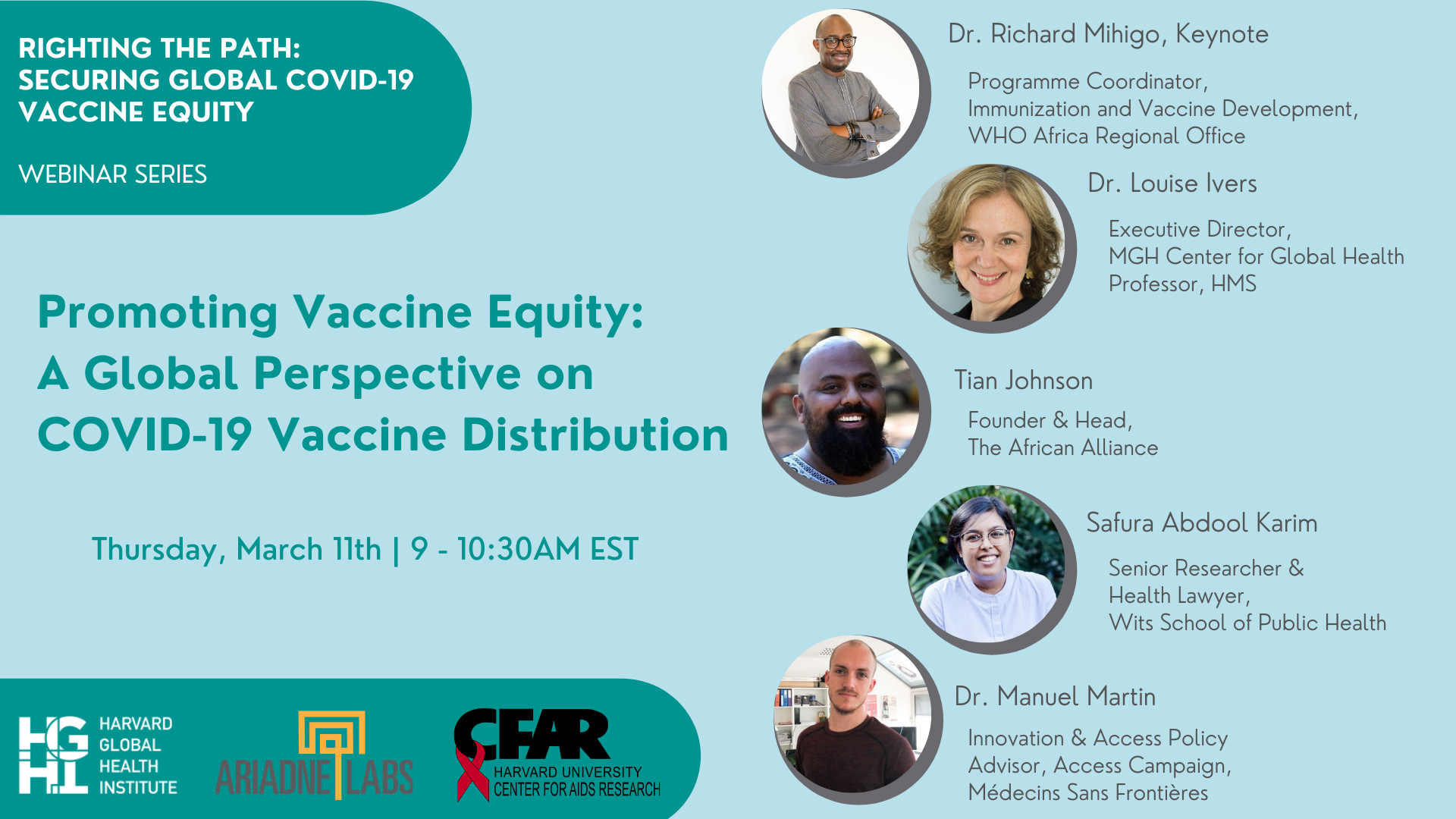Featured
Young Mental Health Leaders Series: Peer Support & Youth Mental Health
Co-Hosted by GlobalMentalHealth@Harvard & Mental Health America
Register for the webinar here!
With increasing rates of distress among young people, young leaders are stepping up to transform how we approach mental health. Youth peer support programs are growing in popularity because young people want them and because research shows peer support works. To build on this momentum, we must equip young people with the tools and skills to support themselves and their peers and invest in youth peer support programs wherever young people spend their time.
Join us for the first webinar in Mental Health America and the GlobalMentalHealth@Harvard Initiative’s Young Mental Health Leaders Series, Peer Support and Youth Mental Health. Satvik Sethi of Runaway App will discuss how his app creates opportunities for young people to receive support and promote positivity. Martin Raffety and Tia Barnes of Youth Era will discuss UpLift, a 5-day virtual event developed alongside the University of Oxford that empowers young people with the tools to support themselves and their peers. The discussion will be moderated by Dr. Cindy Liu, Director of the Developmental Risk and Cultural Resilience Program within Pediatric Newborn Medicine and Psychiatry at Brigham and Women’s Hospital and Assistant Professor at Harvard Medical School.
Panelist and Moderator Bios:
Satvik Sethi is a 22-year-old mental health activist and social entrepreneur on a journey to make the world happier. Originally from New Delhi, India, Satvik currently lives and works in New York. He is the Founder and Chief Executive Officer at Runaway, a social venture promoting mental health awareness and helping those in need of emotional support. Runaway has been featured by UNICEF, the World Health Organization, Vice, etc. Satvik also serves as an Independent Expert Advisor at Wellcome Trust UK to guide research and policy development for youth mental health.
Martin Rafferty is the Founder and Chief Executive Officer of Youth Era, a national nonprofit that is revolutionizing current thinking about how we view youth engagement. The Bill and Melinda Gates Foundation Discovery Center highlighted Martin Rafferty as one of eight global changemakers. He was awarded the “2010 Oregon Mental Health Award of Excellence”, “Advocate of the Year” by the Oregon Council of Child and Adolescent Psychiatry in 2013 and was named one of the “20 Under 40 Rising Business Stars” in 2018. Most recently, Martin was awarded the “2020 Henry J. Grass MD Access Award” by the Oregon Psychiatric Physicians Association.
Tia Barnes is the Chief Program Officer at Youth Era where she oversees the organization’s international direct services, program development, and national technical assistance. She was a key designer of the Youth Era Drop Model, a co-creator of Youth Peer Support Specialist certifications across the nation and has provided training to agencies to increase youth voice within their programs. Most recently, she was a lead designer of an international cultural responsiveness training for youth and young adults. Barnes was one of the authors to create UpLift, an international peer-to-peer course provided to high schoolers from four different countries as a joint research project with the University of Oxford. In addition to her extensive experience, among other honors, Tia received an Award of Excellence in the Field of Youth Peer Support in 2015.
Dr. Cindy H. Liu is an Assistant Professor at Harvard Medical School, the Director of the Developmental Risk and Cultural Resilience Program within the Departments of Pediatric Newborn Medicine and Psychiatry at Brigham and Women’s Hospital, and a licensed clinical psychologist. Her research focuses on stress and mental health within the lifespan, including the perinatal period and young adulthood, and she is currently a principal investigator for the COVID-19 Adult Resilience Experiences Study, a longitudinal study that seeks to understand the experiences of college students and young adults throughout the pandemic. Her work has been funded by the National Institutes of Health and the National Science Foundation and featured in various outlets included the New York Times, USA Today, and CBS News.








